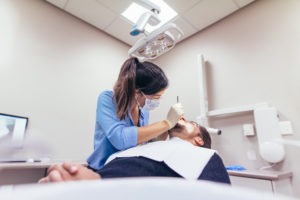Your professional or occupational license allows you to use your education, training, and skills to help others in your field of expertise. You will feel upset and overwhelmed when you receive a complaint against your license. Depending on the outcome of the licensing board’s investigation and any ensuing disciplinary proceedings, you risk losing your license or being unable to continue working in your field, temporarily or even permanently.
In some circumstances, you may realize that you made an error in judgment or violated a rule or law that pertains to your profession. As a result, you may wonder whether it is better to admit your mistake and accept the potential repercussions rather than attempt to defend yourself before the licensing board.
You should seek legal counsel before speaking to your licensing board investigator or admitting wrongdoing. A Texas licensing board defense attorney may be able to defend you against any misconduct allegations or at least minimize the ramifications of any adverse finding. Therefore, it is in your best interests to contact the offices of Bertolino LLP, today by calling (512) 515-9518 or contacting us online.
Admitting Guilt Could Put You in a Worse Position
Even if you think you made a major mistake, you should not immediately contact your licensing board and admit wrongdoing for several reasons. First, you may inadvertently admit more wrongdoing or misconduct than you intended, which can put you in a worse position than you were before. Furthermore, your actions may not have violated a rule or law as clearly as you might think, so you should not admit to an action that may not even be a problem. Therefore, your first step when you receive a licensing board complaint should never be to contact the licensing board and admit guilt. Instead, you should contact a license defense attorney for further guidance.
Admitting Guilt Could Put Your Defense at a Disadvantage
You may have legal defenses to your actions that you may not know to raise if you immediately admit wrongdoing to the board. Strong defenses can weaken the licensing board’s case and make it less likely that you face severe sanctions or disciplinary actions at all. However, you must allow your attorney to evaluate your case before admitting guilt.
You also may have significant mitigating factors that weigh in your favor and help your case. Your attorney can raise these factors by asking that your license board resolve your case without discipline or with a more lenient sanction than normal. But, again, you may be unaware of the need to mention mitigating factors, which could strengthen your case and put you in a better position to defend yourself against the misconduct allegations.
Your Licensing Board is NOT on Your Side
You also should remember that contacting your licensing board about a complaint can be dangerous because the board is not on your side. The board must look out for the safety of the public and to enforce laws, not advocate on your behalf. No matter how friendly the investigator assigned to your case may seem, their job is to determine whether the evidence shows that you violated a law or rule that applies to your profession.
Therefore, anything you say to a board representative, no matter how innocently, can be used against you later. As a result, we find it best to say nothing so that you do not risk admitting wrongdoing or giving additional evidence to the board to use against you in later disciplinary proceedings. Therefore, the only person who will truly represent your interests in disciplinary proceedings is your attorney.
Admitting guilt and giving your licensing board additional evidence against you can make your case more difficult to defend. Therefore, you must raise important issues in response to the licensing board, such as legal defenses and mitigating factors, to avoid putting your defense at a disadvantage from the outset of your case.
Click to contact our professional license defense lawyers today
Refrain from Admitting Guilt to Third Parties
You should not only refrain from admitting guilt to your licensing board, but you also must refrain from admitting guilt to third parties, even if they are your closest friends, family members, or colleagues. The attorney-client privilege applies to you and your attorney, not anyone else. While certain other privileges may apply under state law, you should get legal advice before you talk to anyone about your situation.
If you have a conversation with a third party (other than your lawyer) and admit to misconduct or wrongdoing during that conversation, that third party could testify against you in future disciplinary proceedings. Even if you trust that person, the licensing board could subpoena them as witnesses and require them to tell the truth about your conversation under oath. The same principle applies if you communicate with a third party in writing, such as via email or text message.
Complete a Case Evaluation form now
Defend Yourself Against Disciplinary Proceedings Involving Your Professional License
We want to help put you in the best position to protect your license. However, admitting your mistake without getting legal advice first is not beneficial. Therefore, you should seek immediate legal representation to take the steps necessary to defend your license from these potentially severe consequences. At Bertolino LLP, you will find a professional license defense attorney to assist you with your disciplinary proceedings. Make an appointment to speak to us today by calling (512) 515-9518 or contact us online to see how we can help.
Call or text (512) 476-5757 or complete a Case Evaluation form





